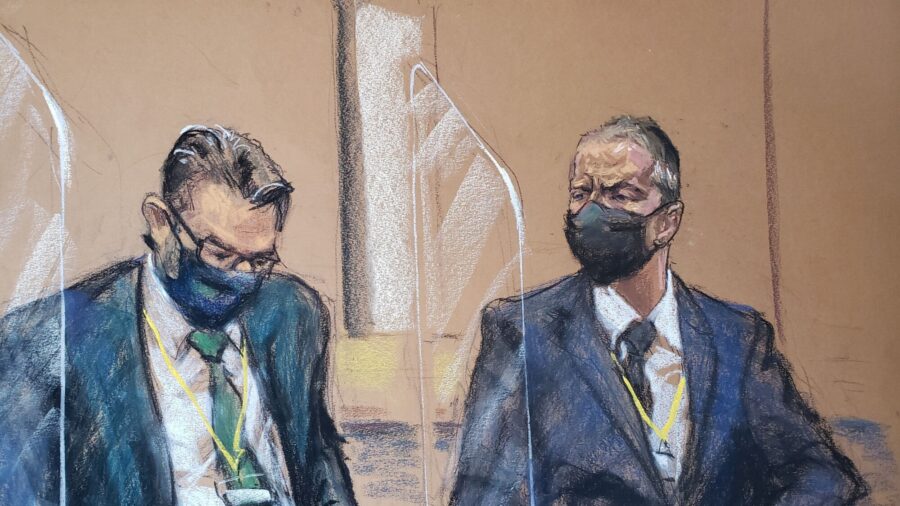MINNEAPOLIS—The trial of former Minneapolis police officer Derek Chauvin for the death of George Floyd was delayed until at least Tuesday morning as the judge contended with a last-minute order by a higher court to reconsider adding an additional murder charge.
The trial had been scheduled to begin on Monday. Chauvin appeared in court dressed in a navy blue suit and tie, a white shirt and a black face mask, jotting notes in a yellow legal pad on the table before him.
Judge Peter Cahill of the Hennepin County district court set aside three weeks for jury selection alone, mindful of the difficulties finding impartial Minneapolitans in a case that has convulsed a nation and in which an image of the victim—a selfie of Floyd faintly smiling—has become an icon used by racial justice activists.
But that was delayed at the urging of prosecutors after the Minnesota Court of Appeals told Cahill in an order issued on Friday he must reconsider prosecutors’ request to also reinstate a third charge, third-degree murder, over the defendant’s objections.
Eric Nelson, Chauvin’s lead lawyer, told the court on Monday morning that Chauvin would soon ask the Minnesota Supreme Court to overturn Friday’s order, a process that could take weeks, although he saw no reason for that to delay jury selection.
But prosecutors from the Minnesota attorney general’s office urged the court to delay jury selection until the appeal was resolved.
“We’re not doing this to interfere, to slow this down, but it is a very important matter,” Matthew Frank, an assistant attorney general, told the court. Prosecutors feared picking a jury when the number of charges was still unresolved could make it easier for Chauvin to appeal a verdict later, Frank said.
Cahill declined, repeatedly saying he believed he was entitled to at least begin seating jurors unless a higher court ordered him not to. Prosecutors then said they would ask the Appeals Court to intervene to delay the trial. Cahill suspended jury selection until at least Tuesday.
Chauvin, 44, is charged with second-degree murder, which carries a sentence of up to 40 years in prison, and manslaughter.
He was released from jail on a $1 million bond last October and will be tried in a courtroom in the Hennepin County Government Center, a tower in downtown Minneapolis now ringed with fencing and concrete barricades for fear of disruption by protesters.
Hundreds of anti-racism protesters chanted in the streets around the courthouse, blocking traffic. They scattered flowers on the tarmac, along with mirrors smeared with fake blood and daubed with slogans asking passers-by to “reflect” on Floyd’s death. A few volunteers set up tables, handing out donated coffee and donuts. A small number of soldiers called in from the Minnesota National Guard watched from a distance.

The courtroom has been adapted to mitigate the spread of the novel coronavirus, and Cahill has sharply limited attendance inside: the families of Chauvin and Floyd have each been allocated a single seat inside the courtroom.
Bridgett Floyd, George Floyd’s sister and founder of the George Floyd Memorial Foundation, went inside for the first day. No one took the seat reserved for Chauvin’s family, according to a pool reporter inside the courtroom.
Most reporters attending must watch a video stream in a building across the street.
Lawyers for Chauvin, who was fired from the police force the day after Floyd’s death, have argued that he correctly followed his training in helping colleagues arrest Floyd on suspicion of using a counterfeit $20 bill at the Cup Foods grocery store. A handcuffed Floyd can be seen in videos struggling against being placed in a police vehicle complaining he has claustrophobia.
The medical examiner ruled that Floyd’s death was a homicide caused partly by police restraint holds. But the autopsy report also noted that Floyd had recently ingested the opioid fentanyl, and Chauvin’s lawyers contend that an overdose was the main cause of death.
By Jonathan Allen


